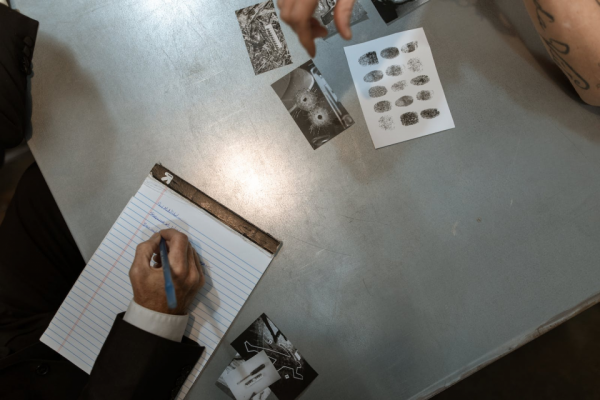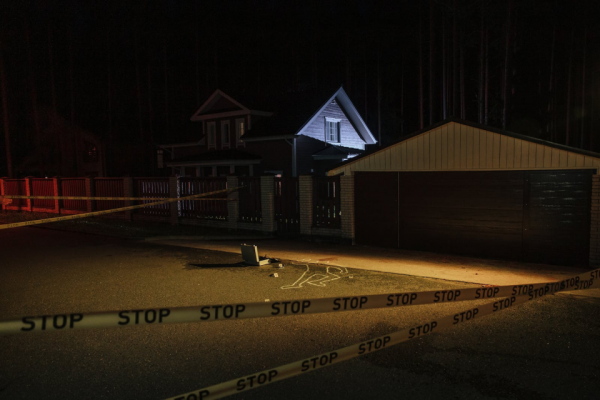
University of Bolton, Deane Road, Bolton. BL3 5AB
Tel:
Email:


“At the University of Bolton, we take great pride in providing a quality, supportive learning environment for our students.”
Professor George E Holmes DL | President & Vice Chancellor
“...tutors are very supportive and you’re not just a student ID number, at this university you are an individual with a name.”
Ellisse Vernon | BSc (Hons) Adult Nursing
Back to menu
Back to menu
Study with an Off-Campus Partner
Back to menu
Back to menu
University of Bolton, why we are the right choice
Location - Bolton, Greater Manchester

30/10/2023
Forensic science's journey through history is a story of human innovation and determination, demonstrating our endless drive to uncover the truth and administer justice.
At the University of Bolton, our Crime and Criminal Justice degree give you the tools needed to be at the forefront of this!
So, let's venture deeper into forensic science and the milestones that have reshaped our approach to crime and justice over the centuries.
Our tale begins in ancient China. The 1200s manuscript "The Washing Away of Wrongs" by Song Ci stands as a testament to early forensic thought, highlighting the significance of observing minute details in criminal investigations, such as establishing a clear cause of death.

The 19th century saw critical advancements in forensic methodologies. Sir Francis Galton's groundbreaking research on fingerprints confirmed their role as unique individual identifiers. This revelation was monumental in the 1902 conviction of Francisca Rojas, who is believed to be the first criminal found guilty using fingerprint evidence. Her bloody fingerprints at the crime scene became irrefutable proof of her presence, leading to her confessing to murdering her two children in Neocchea, Argentina.
In the same era, Alphonse Bertillon pioneered a method for recording body measurements, laying the foundations for modern biometrics. The Bertillon system, which meticulously recorded features like the length of the forearm or the width of the cheekbones, was successfully applied in the arrest and conviction of the notorious criminal Martin Fourichon.
We witnessed a game-changing discovery in the late 20th century: the introduction of DNA fingerprinting! We have Sir Alex Jeffreys to thank for this. The monumental implications of DNA in the world of justice became clear in cases such as:
Colin Pitchfork
Two 15-year-old girls, Lynda Mann and Dawn Ashworth, were murdered in Leicestershire in the 1980s. The case went unsolved until 1987, when the world's first mass DNA screening took place, involving over 5,000 local men. Colin Pitchfork was eventually identified and convicted, marking the first time DNA profiling was used to catch a murderer.
Kirk Bloodsworth
In 1993, Kirk became the first American on death row to be exonerated through DNA evidence. He had been convicted for the rape and murder of a nine-year-old girl in Maryland. After spending almost nine years in prison (two of which were on death row), DNA testing proved that he was not the perpetrator. The actual criminal was identified and convicted in 2003.
The Green River Killer
One of the most notorious serial murder cases in the U.S., the Green River Killer eluded capture for decades. Gary Ridgway had murdered numerous women in the state of Washington during the 1980s and 1990s. DNA evidence collected from the crime scenes ultimately led to his arrest in 2001. He pleaded guilty to 49 counts of murder.
Unsurprisingly, technological innovation is driving forensic science even further forward.
Digital forensics, with its ability to delve into electronic devices, reveals intricate trails of evidence. The capture of the hacker 'Sabu' in 2011 is a testament to just how effective this type of forensic science can be.
Contemporary tools like 3D crime scene reconstruction offer unparalleled perspectives into incidents, revolutionising the interpretation of evidence.

At the University of Bolton, we're more than observers of the forensic science evolution - we're participants. Our ever-evolving curriculum allows you to explore the latest innovations in forensic science, ensuring our students are at the cutting edge of this field. With hands-on labs, case studies, and interactions with industry, we prepare the next generation of forensic experts. And we do this in a supportive and inclusive learning environment!
If this captivating field ignites your passion, we invite you to be a part of it. Please do not hesitate to get in touch today if you have any queries. You contact us at enquiries@bolton.ac.uk or via 01204 903903.